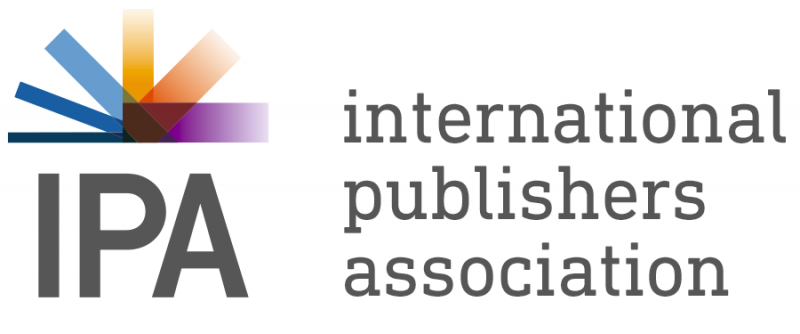News
IPA Recommendations

Every citizen has the right to education and culture. Their books must reflect their values and culture and must be relevant to their circumstances. Only local authors can address such needs, and only a publishing industry based on a range of local, free, entrepreneurial publishers can develop the content that gives a nation its own voice, to preserve and develop a national identity.
Educational publishing is a key sector. A healthy, vibrant and dynamic local publishing industry is unthinkable without a healthy, vibrant and dynamic educational publishing industry. Its health forms the economic basis for publishing as a whole.
Interest in short-term cost savings causes major long-term cultural losses by destroying the basis of local publishing. Throughout the world local publishing is often threatened by misguided policies such as the following:
· Governments commission a single publication for adoption in their entire country. A local publishing industry cannot develop on the basis of very few very large tenders with no sustainable business in between. Business needs long-term development prospects. Skills and experience can only be built up over time, while sporadic, monolithic tenders prevent local educational publishing from developing.
· The terms of government textbook tenders often include copyright assignment and/or single fee payments, also preventing longer-term reliable revenue streams.
· Single-burst business means a regular sustainable distribution infrastructure cannot develop. Ad hoc business partners come in for a quick win, not to develop a long-term business. Ad hoc business partners generate high costs because of high default rates, low skills base and no interest in skills and service development.
· Educational writing is a skill that is acquired and developed over time. Without a long-term business horizon publishers cannot invest in training local writers.
· With rampant piracy it is difficult for local publishing houses to access bank credits, as copyright is not valued as a security asset.
The following is a list of key policy principles aimed at young and developing markets. Such measures must be implemented, in some cases gradually over time and to the extent that local circumstances allow, in order to create a long-term business environment that allows local writers, publishers, distributors and bookshops to develop the skills and invest to become the basis of a vibrant, innovative and successful publishing industry.
1. National Educational Book Policy
A policy decision must be taken at the highest level to develop and support a national educational publishing industry as a development objective. This is not a one-off process but reiterative, providing for monitoring, impact assessment and progress tracking.
2. Government Set Educational Objectives
Educational authorities must refrain from publishing and printing and focus on the development of the education curriculum. This includes online publishing. Any changes in the curriculum must be published and communicated to ALL publishers in a timely manner to make the necessary changes to their editorial content.
3. Transparent Mechanism For Official Recognition
An independent authority led by acknowledged experts, including independent teachers and professors, should examine whether a book complies with the existing curriculum.
4. Fair Process
The evaluation process for official recognition must be open, transparent and based on clearly defined criteria. There should be no restriction on the number of books that can be accredited for a given course. If books are rejected, then the reasons for the rejection must be given to the publisher. Ideally an iterative process allows publishers to make improvements until their books meet the required standards.
5. Equal Opportunities for All Publishers
Foreign owned publishing houses are an important component of the local publishing industry mix, as they may raise quality standards and bring skills into local publishing. All publishing houses must be treated equally, whether privately owned, foreign owned or government owned. All must have the same opportunity to have their books approved for use in public schools.
6. Devolution of Adoption
The decision which book to adopt for a specific classroom should be taken at the most devolved level possible, ideally at school level or lower.
7. Devolution of Funding
The funding for the purchase of the books should be ideally given to the schools or parents.
8. Use of Existing Book Infrastructure
School books are sold and distributed through book shops, where applicable, in order to give book shops a stable revenue basis.
9. No Copyright Assignment of Books
There must be no assignment of copyright or mere one-off payments for the author or publisher when a book is adopted. The agreement should allow authors and publishers to develop a regular long-term income stream depending on the success of the book in schools.
10. Addressing the Mass Copying of School Books
Where piracy or mass copying takes income away from authors and book publishers it causes serious long-term harm. Copying in schools should be addressed through collective licensing. Piracy of school books must be vigorously fought.


























